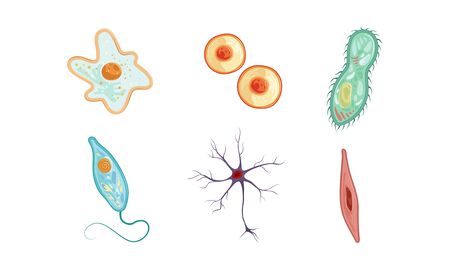Introduction: Connecting Diet with Chronic Disease Prevention
The relationship between what we eat and our long-term health has become a central theme in public health discussions across the United Kingdom. As rates of chronic illnesses such as heart disease, type 2 diabetes, and certain cancers continue to rise, greater attention is being paid to how dietary patterns can either contribute to or help prevent these conditions. In recent years, there has been an increasing awareness among the British public about the vital role that daily food choices play in maintaining overall well-being and preventing disease. This exploration seeks to unravel the intricate links between traditional British eating habits, emerging trends, and their impact on chronic disease prevention. By examining both modern research and time-honoured perspectives on nourishment, we can better understand how mindful dietary practices may serve as a powerful tool for fostering long-term health in the UK.
Overview of British Eating Habits: Tradition Meets Modernity
British eating habits have long been shaped by a unique blend of cultural heritage, climate, and geography. Traditionally, the British diet centred around hearty meals such as roast dinners, pies, stews, and an emphasis on locally produced ingredients like root vegetables, grains, and seasonal fruits. Afternoon tea, with its ritual of sandwiches, scones, and cakes, further highlights the social aspect of food in British culture. However, over recent decades, these patterns have shifted dramatically due to fast-paced modern lifestyles and globalisation.
The Shift Towards Convenience Foods
Modern British society has seen a significant rise in the consumption of convenience foods—ready meals, takeaways, processed snacks, and sugary drinks. This transition reflects changes in work patterns, urban living, and time constraints. While these options offer ease and speed, they often come at the cost of nutritional value. The increased intake of refined carbohydrates, saturated fats, salt, and sugar has become a growing concern among health practitioners.
Comparing Traditional vs Modern British Diets
| Traditional Diet | Modern Diet | |
|---|---|---|
| Main Components | Whole grains, root vegetables, fresh meats and fish, seasonal produce | Processed foods, ready meals, high-sugar snacks, soft drinks |
| Meal Preparation | Home-cooked meals from scratch | Microwaveable or takeaway options |
| Nutritional Quality | Rich in fibre and nutrients | Often high in calories but low in micronutrients |
Impact on Well-being
This evolution in eating habits directly influences overall well-being. Traditional diets generally foster better digestive health and provide balanced nourishment for mind and body—a principle echoed in both Western nutrition science and Chinese medicine’s holistic view. In contrast, reliance on modern convenience foods is associated with higher risks of chronic diseases such as obesity, diabetes, heart disease, and even mental health challenges.

3. Nutritional Imbalances and the Rising Tide of Chronic Diseases
Across the United Kingdom, dietary habits have shifted dramatically in recent decades, resulting in a complex landscape of nutritional imbalances. Central to understanding chronic disease prevention is recognising how both deficiencies and excesses in the British diet contribute to rising rates of obesity, type 2 diabetes, and cardiovascular disease. Many people consume diets high in processed foods rich in saturated fats, sugars, and salt, while often lacking essential nutrients such as fibre, vitamins, and minerals. This pattern not only reflects modern lifestyles but also the disconnection from traditional food wisdom that once emphasised harmony and moderation.
From a holistic perspective, balance is paramount—an idea long upheld in both traditional Chinese medicine and Western health philosophies. Excessive intake of calorie-dense foods undermines the body’s natural equilibrium, leading to weight gain and metabolic disturbances. For example, the frequent consumption of sugary drinks and snacks can result in persistent blood sugar spikes and crashes, straining the pancreas and paving the way for insulin resistance and diabetes. Similarly, diets low in fresh fruits, vegetables, and whole grains are deficient in protective antioxidants and phytochemicals crucial for cardiovascular health.
The British diet’s common shortfalls—such as inadequate omega-3 fatty acids from oily fish or insufficient magnesium from nuts and leafy greens—further weaken the body’s resilience against inflammation and stress. When these nutritional gaps are left unaddressed, they manifest over time as chronic ailments that disrupt both physical well-being and emotional stability. Therefore, it becomes essential for individuals and families to cultivate awareness of what is missing or excessive in their daily meals, striving for a balanced approach that supports long-term vitality.
4. Holistic Perspectives: Incorporating Mind-Body Harmony into Dietary Choices
When considering chronic disease prevention in the UK, it is increasingly valuable to look beyond nutrients and calories, drawing inspiration from Eastern medicine’s holistic approach. Traditional Chinese Medicine (TCM) emphasises the interconnectedness of body, mind, and environment—a philosophy highly relevant to modern British dietary habits. By fostering a sense of mind-body harmony, individuals can make more balanced and intentional food choices that support long-term health.
The Principle of Balance in Eating
In TCM, health is maintained by balancing yin and yang energies, reflected in our daily meals. This means not only enjoying variety but also tuning into seasonal foods, natural flavours, and personal constitution. British cuisine already offers diverse local produce—root vegetables in winter, berries in summer—which aligns naturally with this principle when approached mindfully.
Mindful Food Selection: A Comparative Approach
| Eastern Medicine Perspective | British Dietary Practice |
|---|---|
| Balance of hot and cold foods for internal harmony | Pairing hearty stews with fresh salads or seasonal fruits |
| Emphasis on freshness and food energy (Qi) | Preference for locally sourced produce at farmers’ markets |
| Awareness of emotional state while eating | Savouring meals without distractions, such as turning off the television during dinner |
Cultivating Mindful Eating Habits
Practising mindfulness at mealtimes—slowing down, appreciating flavours, and recognising hunger or satiety signals—can help counteract common British eating pitfalls like rushed breakfasts or late-night snacking. Over time, these habits not only improve digestion but also contribute to emotional wellbeing and reduce the risk of chronic diseases.
By weaving together holistic concepts from Eastern traditions with familiar British customs, we can enrich our relationship with food. Embracing mindful, balanced eating honours both cultural heritage and individual health, laying a solid foundation for chronic disease prevention across generations.
5. Practical Steps for the British Public: Harmonising Modern Life with Healthy Traditions
Nourishing Body and Mind Through Everyday Choices
Integrating nutritious foods into daily life need not mean abandoning beloved British culinary traditions. By thoughtfully blending classic ingredients with modern nutritional wisdom, it is possible to cultivate both health and heritage. Here are some practical steps tailored for the British public, inspired by the holistic harmony valued in Chinese medicine.
Reinventing Classic Dishes
Traditional British meals such as roast dinners, shepherd’s pie, and fish and chips can be subtly transformed to support chronic disease prevention. Opt for lean cuts of meat or incorporate more plant-based proteins such as lentils and beans into pies and stews. Swap white potatoes for sweet potatoes or root vegetable medleys, increasing fibre and phytonutrient intake while maintaining familiar flavours.
Embracing Local, Seasonal Produce
Honouring the natural rhythms of the land is a cornerstone of both British farming tradition and Eastern wellness philosophy. Choose locally grown vegetables—such as kale, carrots, parsnips, and brassicas—that are abundant in antioxidants. Incorporate them into soups, bubble and squeak, or as vibrant sides for main courses. Shopping at farmers’ markets strengthens community connections and supports environmental balance.
Mindful Meal Planning
Incorporate a variety of whole grains like barley, oats, and rye into breakfast porridges or bread baking. These grains have deep roots in British cuisine and offer sustained energy release, aligning with the holistic principle of nourishing both body and spirit throughout the day. Plan meals that balance proteins, complex carbohydrates, healthy fats, and abundant vegetables to create harmony on the plate.
Rediscovering Herbal Allies
Herbs such as parsley, thyme, sage, mint, and rosemary have long played a role in British cooking and also possess medicinal properties revered in traditional healing systems. Use these liberally to flavour dishes while supporting digestion and overall vitality. Consider herbal teas like chamomile or nettle as calming after-dinner beverages that foster digestive harmony.
Cultivating Rituals Around Eating
Beyond ingredients alone, how we eat profoundly impacts our wellbeing. Make mealtimes a restorative ritual—sit down without distractions, savour each bite, and express gratitude for the food’s journey from field to table. This mindful approach echoes both British teatime customs and Eastern philosophies around harmonious living.
Conclusion: Bridging Past and Present for Lifelong Health
By drawing upon time-honoured British foods while embracing contemporary understanding of nutrition and holistic health, individuals can create a diet that supports physical resilience and emotional balance. In this way, modern life becomes an opportunity not just for convenience but for deeper connection—to our bodies, our culture, and our collective well-being.
6. Conclusion: Embracing a Wholesome Future
Reflecting on the intricate relationship between diet, British eating habits, and chronic disease prevention, it becomes clear that small yet meaningful changes in our daily choices can create a profound impact on public health. The lessons from both modern research and traditional wisdom underscore the importance of embracing balance—just as in Chinese medicine, where harmony within the body is seen as essential for wellbeing. Across the UK, there is a growing awareness of how dietary patterns, such as high intakes of processed foods and low consumption of fresh fruits and vegetables, contribute to rising rates of conditions like diabetes, cardiovascular disease, and obesity.
By consciously shifting towards whole, seasonal foods and reducing reliance on convenience meals, Britons can support both physical vitality and emotional equilibrium. Encouraging the enjoyment of shared meals, mindful eating, and locally sourced ingredients resonates with longstanding British traditions while also aligning with preventative health strategies. It is not simply about restricting certain foods but cultivating a positive attitude towards nourishment—a practice deeply rooted in both British culture and holistic approaches to health.
Ultimately, preventing chronic disease across the UK requires collective action: individuals making informed choices, communities fostering supportive environments, and policymakers prioritising access to nutritious food for all. Through education, community initiatives, and a renewed appreciation for the healing power of food, we can look forward to a future where chronic illnesses are less prevalent and wellbeing flourishes. Let us cherish our heritage while embracing new habits that honour both body and mind—a truly wholesome path forward for generations to come.


